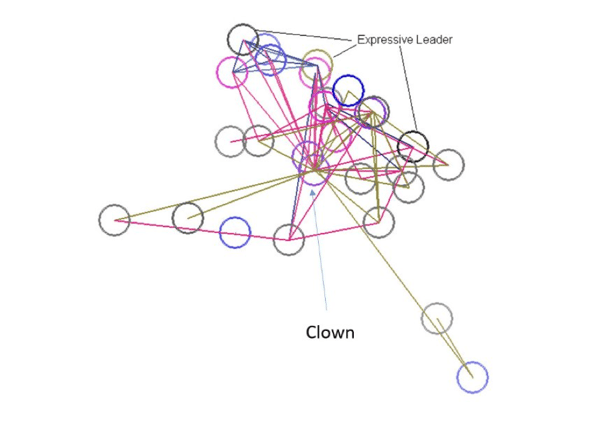Humor as a decisive driver of successful teams
It is normal that after successes and after failures it is analysed which aspects were decisive for the respective achievement. In team sports, there is often talk of one type of person whose presence or absence has made a decisive contribution to the achievement: the mood cannon.
It remains to be seen to what extent Thomas Müller or Lukas Podolski are jointly responsible for the 2014 World Championship title, but it is interesting to note that this assumption is not so far-fetched. It is experienced in reality and has been scientifically proven for about 20 years (Johnson, Boster & Palinkas 2003). Among others, the US Space Agency is investigating the interaction in groups for its manned Mars mission.
The result is astonishing: A successful team needs a clown!
Humor as a feel-good factor
Humor is observed in all cultures and at all ages. But only in recent decades has psychology explained it as a basic human behavior. Positive Psychology, a discipline that examines what human talents are, states that humor can help others feel good, achieve greater intimacy, or relieve stress.
The appreciation of humor correlates with strengths such as wisdom and joy of learning. Humor also leads to increased emotional well-being and optimism.
Humour as a binding factor
There are different unofficial roles in each group. These roles are assumed and filled unconsciously in initial group phases. While someone is more likely to occupy the role of leader, someone else takes on the role of reminder and the third person may take on the role of clown, the sociable storyteller.
Clown is not someone whose characteristics are superficiality and lack of expertise. Rather, clowns are crucial for the cohesion and unification of subgroups into a large team. They humorously solve tensions and create a pleasant atmosphere.

Figure 1: Network of the most successful Nasa team (Jeffrey C. Johnson / University of Florida)
Humour as an attractiveness factor
People usually approach pleasure and avoid pain. Therefore, the pursuit of humour influences our daily choices - websites, books and magazines we read, TV shows and movies we watch, and people we talk to (or don't talk to).
And because humour is appreciated by consumers, companies constantly create funny advertisements and products to attract our attention and entertain us.
Humour as a creative "push" factor
It is not surprising that humorous people receive attention and admiration. Their ability to create and appreciate humour influences who wants to meet or be friends with them.
Most studies therefore consider humour to be a highly desirable quality, which explains why the acronym GSOH ("good sense of humour") has found its way into online dating portals. According to the work of Barbara Frederickson (2011) and others who explore the benefits of positivity, humor is an excellent way to enhance creative skills.
Finally, humor smoothes potentially tense social and cultural interactions. Think about how much easier an uncomfortable situation can be when you can laugh together.
Humour supports learning
Humor also has an educational side. So it could be proven (Scheel & Gockel 2017) that it helps in learning. Most can still remember the funniest mishaps from their primary school days.
The rational explanation is that humor triggers a positive reaction in our cognitive memory and forces our brain to remember it because it has developed a positive feeling in us. To put it in a nutshell with brain researcher Gerald Hüther: We always learn when something goes under the skin.
Conclusion
Teams are especially successful when there is a healthy mix of characters. The group clown can play a decisive role here, as he acts as a link and mood canon in a team and thus creates a positive and creative atmosphere in which successful work is possible.
If you would like to find out more about the "healthy organisation", teams or our workshops, please feel free to inform yourself about our services in this area or simply contact us.
Literature:
Fredrickson B. (2011). The power of good feelings: How a positive attitude changes your life permanently. Frankfurt: Campus.
Johnson, J.C., Boster J. S. & Palinkas, L. A. (2003). Social roles and the evolution of networks in extreme and isolated environments. In: The Journal of Mathematical Sociology, 27, 89-121.
Scheel, T. & Gockel, C. (2017). Humor at Work in Teams, Leadership, Negotiations, Learning and Health. Basel: Springer International Publishing.
Room C. (2013). Humour in the team. In: Laughter: 3× daily. Top in the health job. Berlin: Springer.

